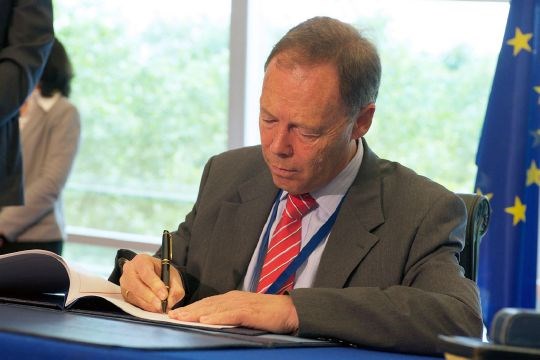Strengthening the European Court of Human Rights
Historical archive
Published under: Stoltenberg's 2nd Government
Publisher: Ministry of Foreign Affairs
News story | Date: 25/06/2013
Yesterday, Norway was one of the first countries to sign Protocol No. 15 amending the European Convention on Human Rights. “The Protocol may lead to faster processing of important human rights cases in Strasbourg,” said Minister of Foreign Affairs Espen Barth Eide.
Yesterday, Norway was one of the first countries to sign Protocol No. 15 amending the European Convention on Human Rights. “The Protocol may lead to faster processing of important human rights cases in Strasbourg,” said Minister of Foreign Affairs Espen Barth Eide.
Protocol No. 15 was adopted by the Council of Europe’s Committee of Ministers on 16 May, and it will help to ensure the future of the European Court of Human Rights.

The European Court of Human Rights in Strasbourg rules on individual or State applications alleging violations of the civil and political rights set out in the Convention for the Protection of Human Rights and Fundamental Freedoms. For many years, the court has struggled with a heavy caseload and a significant backlog. At the end of May, it had more than 116 000 cases pending.
The main purpose of Protocol No. 15 is to improve the effectiveness of the court. The most important amendment is one that will make it easier for the court to reject cases that are of little significance. This may help to ensure that rulings are made on a greater number of important cases within a reasonable period of time. The protocol does not amend any of the rights or freedoms set out in the convention.
“Norway has long played an active part in the reform process to strengthen the court. Protocol No. 15 is a step in the right direction,” said Mr Eide.
“The Government will continue its efforts to promote additional reforms and to ensure that the resources available to the court are increased and that the national implementation of human rights obligations is improved,” Mr Eide said.
In order to enter into force, the Protocol must be ratified by all the member states of the Council of Europe.
Read more about Protocol No. 15 on the Council of Europe website.